Overview
Sellercloud allows you to implement and modify custom shipping rules within Shipbridge via a Generic Shipping Rules plugin. Seamlessly design and adjust your shipping framework for orders by utilizing a custom CSV file with predefined rules.
Prerequisites
Before you initiate the shipping rules configuration, you must request the Generic Shipping Rules plugin and install it on your computer. To obtain the plugin, open a ticket to Sellercloud Support. In case you don’t have a support account, you can register here.
Shipping Rules
This plugin operates via a custom set of guidelines. To create this framework, you have to list each shipping rule in a CSV file (Click here to download a sample file!) with the following column headers:
- Type – Select the desired rule type – either Service Change or Require Signature.
-
- Service Change – Use this type in case you would like to impact a shipping service configuration, based on the related rule’s criteria.
- Require Signature – Select this type in case you would like to add a signature requirement to the orders that fit the rule’s criteria.
- OldVal – Add the full name of the existing shipping service on the orders to which the rule will be applied. In case this field is empty, the plugin will apply the rule regardless of the current shipping service.
- NewVal – Insert the shipping service provider to be applied to the orders that fit all other criteria for this rule. This value is required for Service Change and ignored for Require Signature rule types.
- WeightOzMin – Define a weight minimum limit (in ounces), so the rule ignores orders below this weight. Leave blank to dismiss a weight minimum.
- WeightOzMax – Insert a maximum order weight limit (in ounces), above which the rule will no longer apply. Leave blank to dismiss a weight maximum.
- GrandTotalMin – Select an order grand total minimum, under which the rule will no longer apply. Leave blank to dismiss a total minimum.
- GrandTotalMax – Define an order grand total threshold, above which the rule will not be applicable. Leave blank to rule out a grand total maximum.
- Channel – The rule will only apply to orders from this channel. If you wish to apply the same rule to orders from all channels, leave the field blank.
- Company ID – The rule will apply only to orders with this Company ID number. Leave blank so the rule applies to orders from all companies.
- IsRush – Select True or False value. If you wish the rule to apply only to Rush orders, choose True. To apply the rule to non-Rush Orders, insert False. Leave this field blank, so the rule applies to all orders.
- IsPrime – Select True or False value. To apply the rule only to Prime orders, choose True. To affect non-Prime Orders, put False. Leave this field blank, so the rule applies to all orders.
- StateList – Insert a tilde delimited (~) list of state abbreviations, so the rule applies only to orders whose shipping address is in these states (e.g. AL~AK~AZ~DE). Leave this field blank, so the rule applies to all orders.
The plugin retrieves these shipping rules through a publicly accessible Google Sheets URL. To obtain a link to the CSV file version of the Google Sheets document, follow the steps below:
- Select File > Share > Publish to Web.
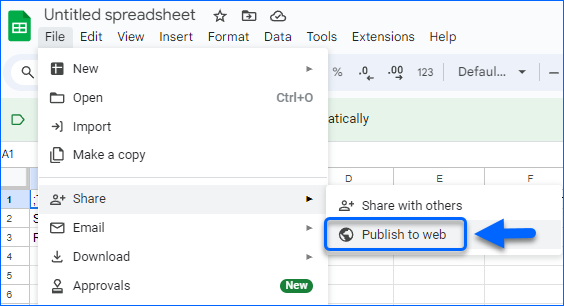
- In the dialog select Link, then click on the Entire Document dropdown and select the sheet that you want to export.
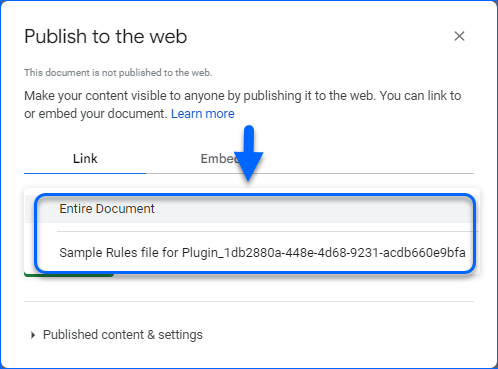
- Click on the Web page dropdown and select Comma-separated values (.csv), then click the Publish button.
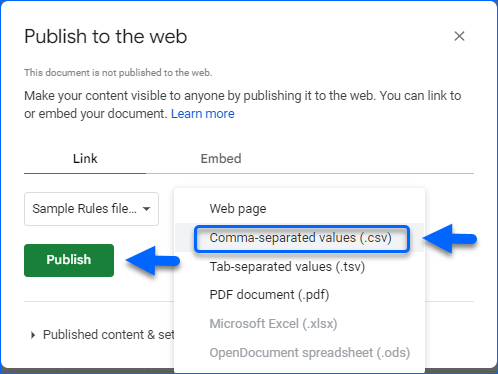
- When asked if you want to publish the selection, click OK.
- Copy and use the generated link in the following dialog.
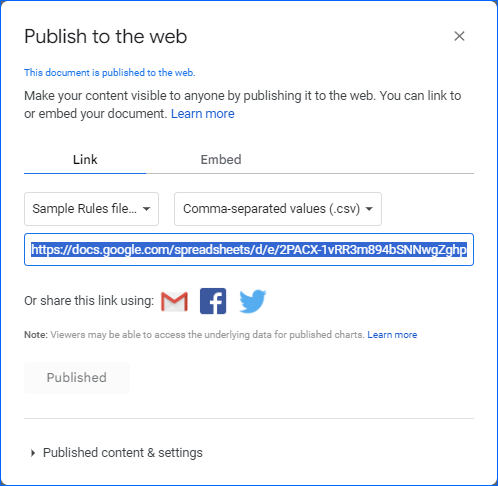
Plugin Configuration
Once you prepare your CSV file with rules and your Generic Shipping Rules plugin is installed in Shipbridge, you can proceed:
- Click on the plugin within Shipbridge and select the Configure Plugin option.
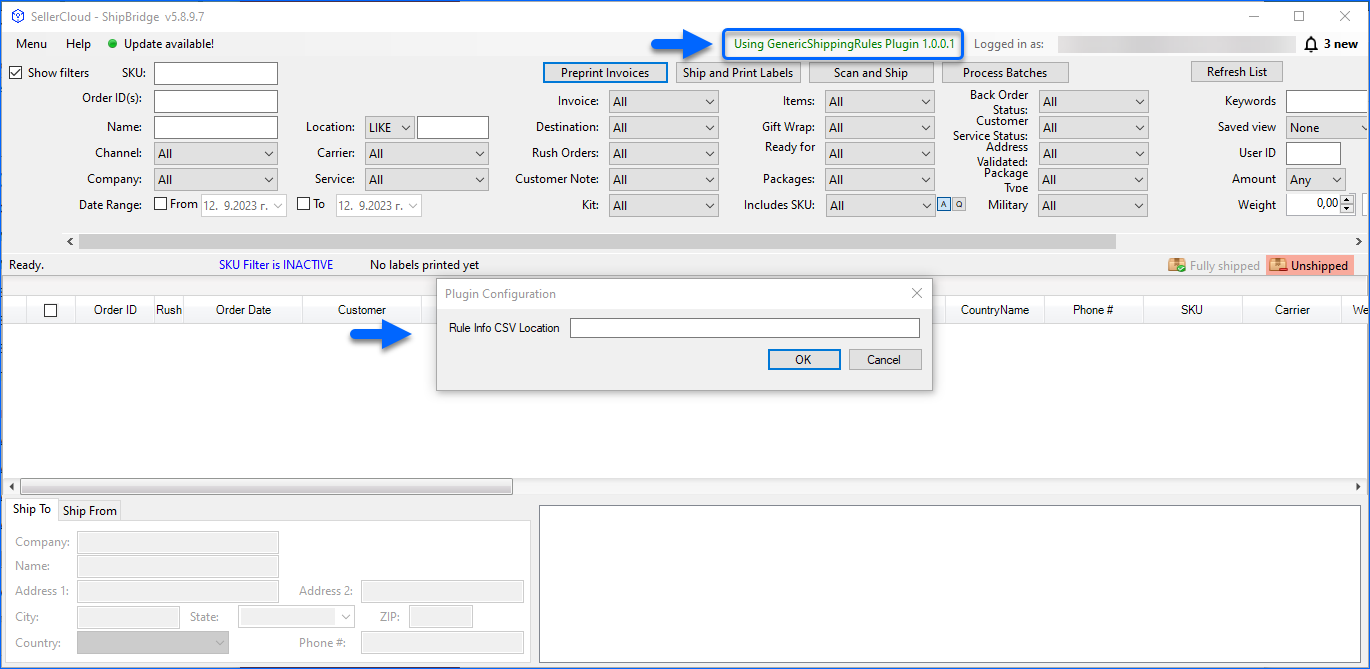
- Insert the Google Sheets link to the published CSV file in the Rule Info CSV Location field.

- Click OK.
Shipbridge will adhere to your custom shipping rules for any future orders that meet the specified criteria.